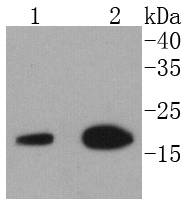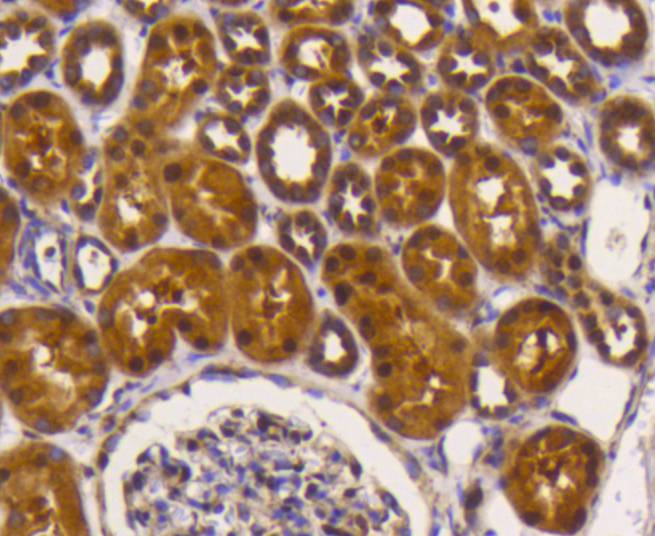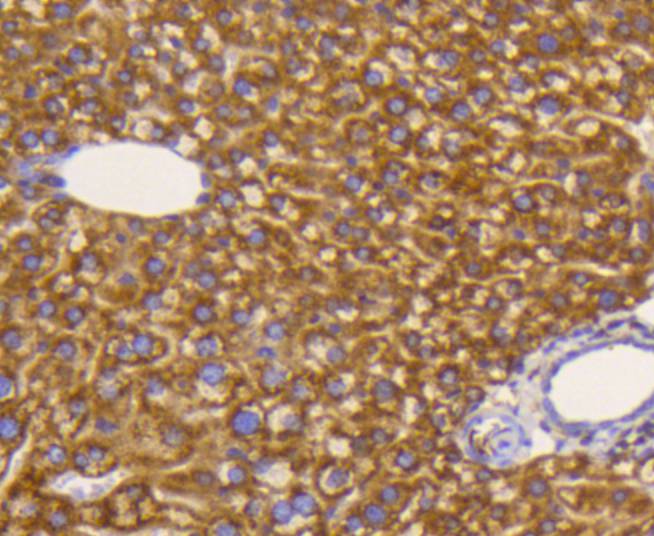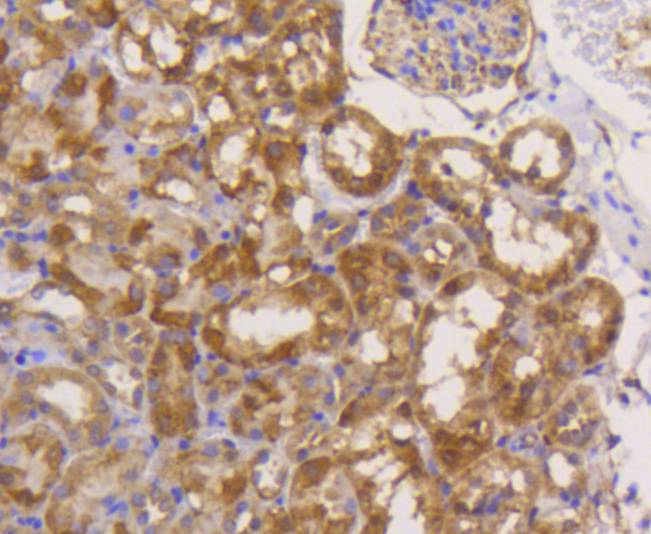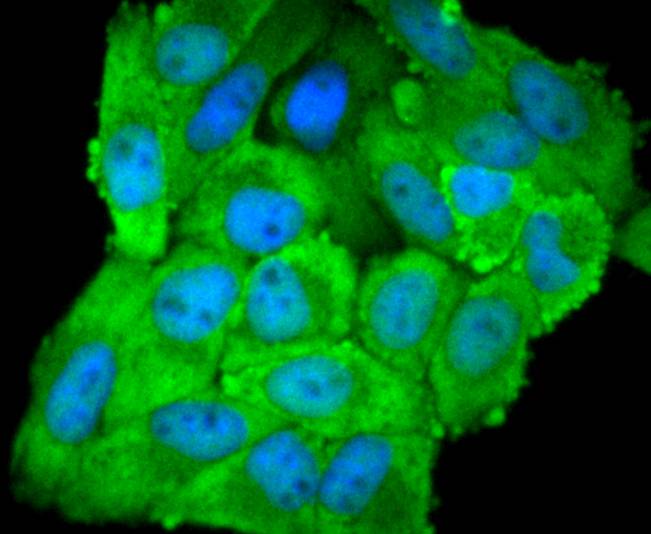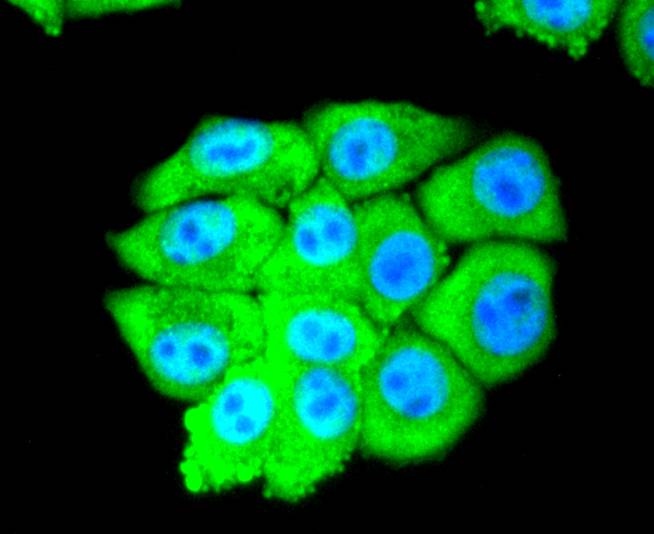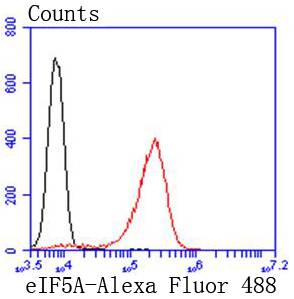In mammalian cells, translation is controlled at the level of polypeptide chain initiation by eukaryotic initiation factors. The human eukaryotic translation initiation factor 5A gene, also designated eIF-4D or eIF5A, maps to chromosome 17p13.1 and encodes a 154 amino acid protein that is linked to cellular polyamine homeostasis. eIF5A localizes to the nuclear and cytoplasmic compartments of mammalian cells where it can stimulate ribosomal peptidyl-transferase and may be involved in nucleocytoplasmic mRNA transport and/or protein translation. eIF5A contains a unique spermidine-derived post-translational modification at Lys-50, hypusine, which is necessary for eIF5A's biochemical activity and for cellular proliferative signaling. In addition, eIF5A is a cellular cofactor for the function of the Rev transactivator protein of human immunodeficiency virus type 1 (HIV-1). Inhibition of eIF5A interaction with Rev leads to a block of the viral replication cycle.

